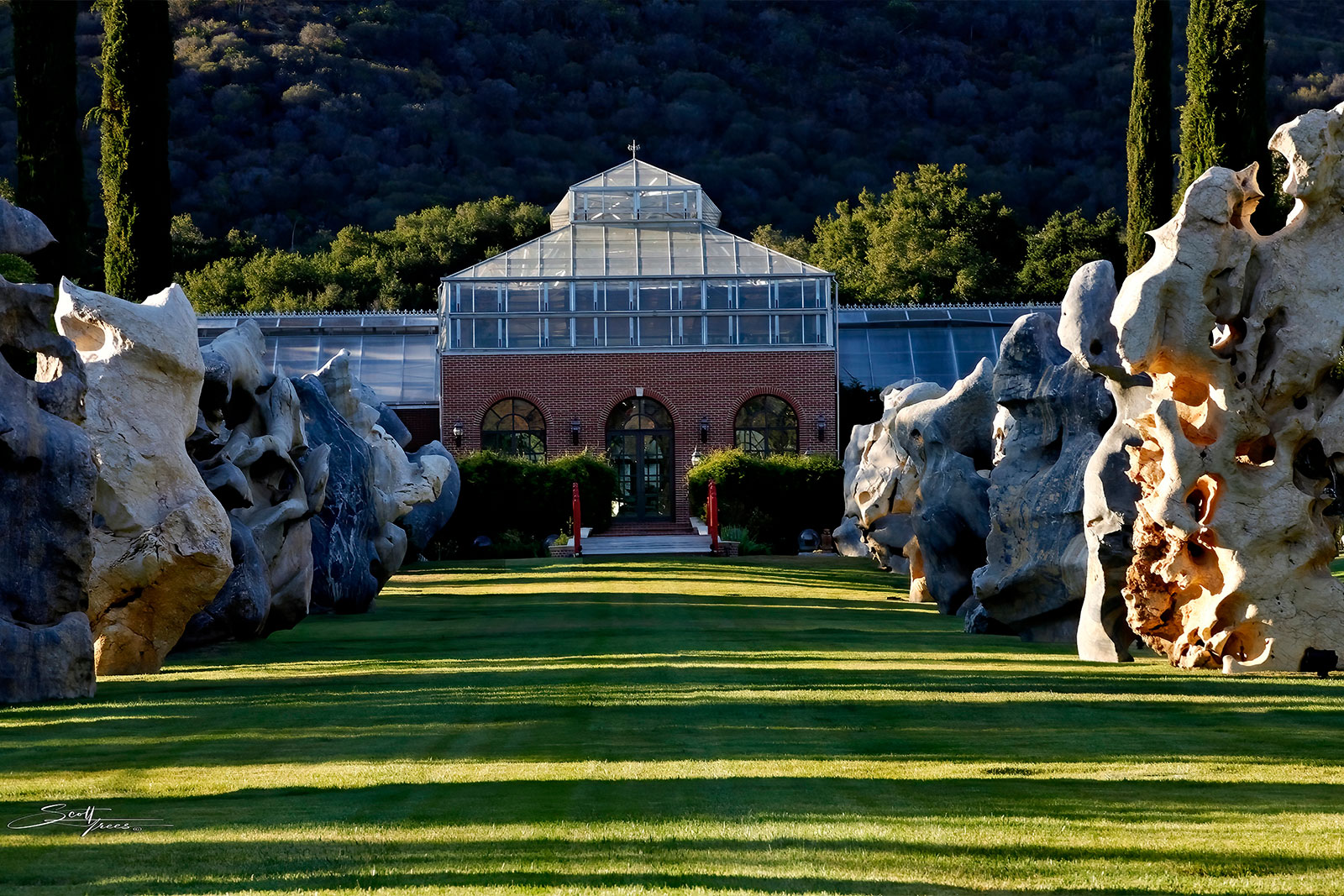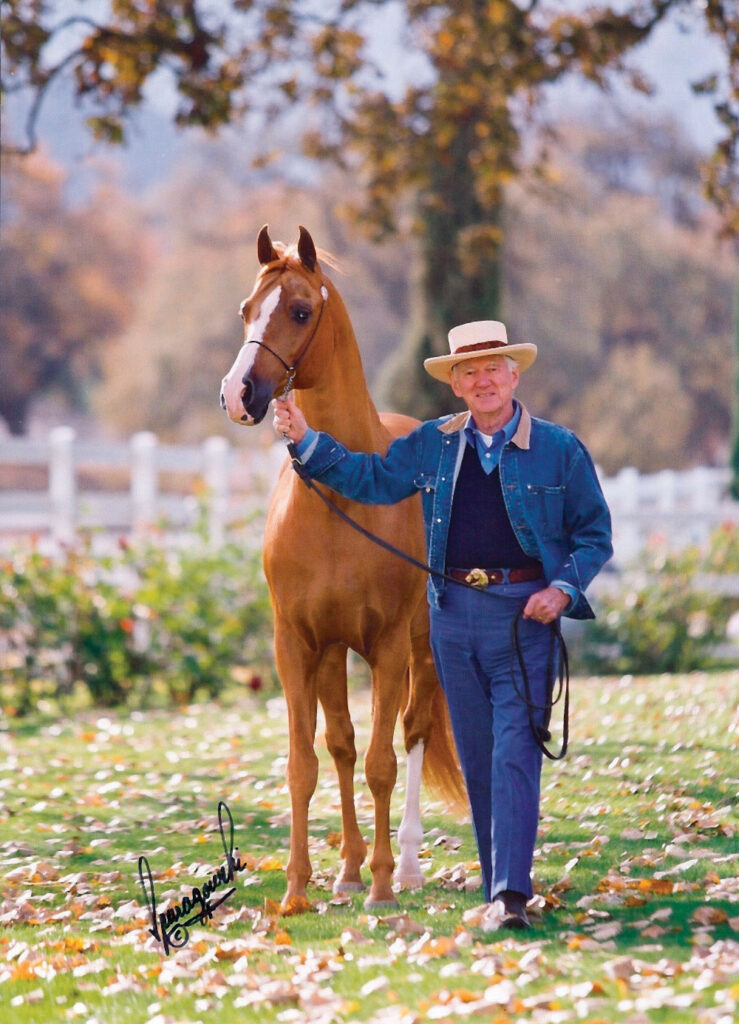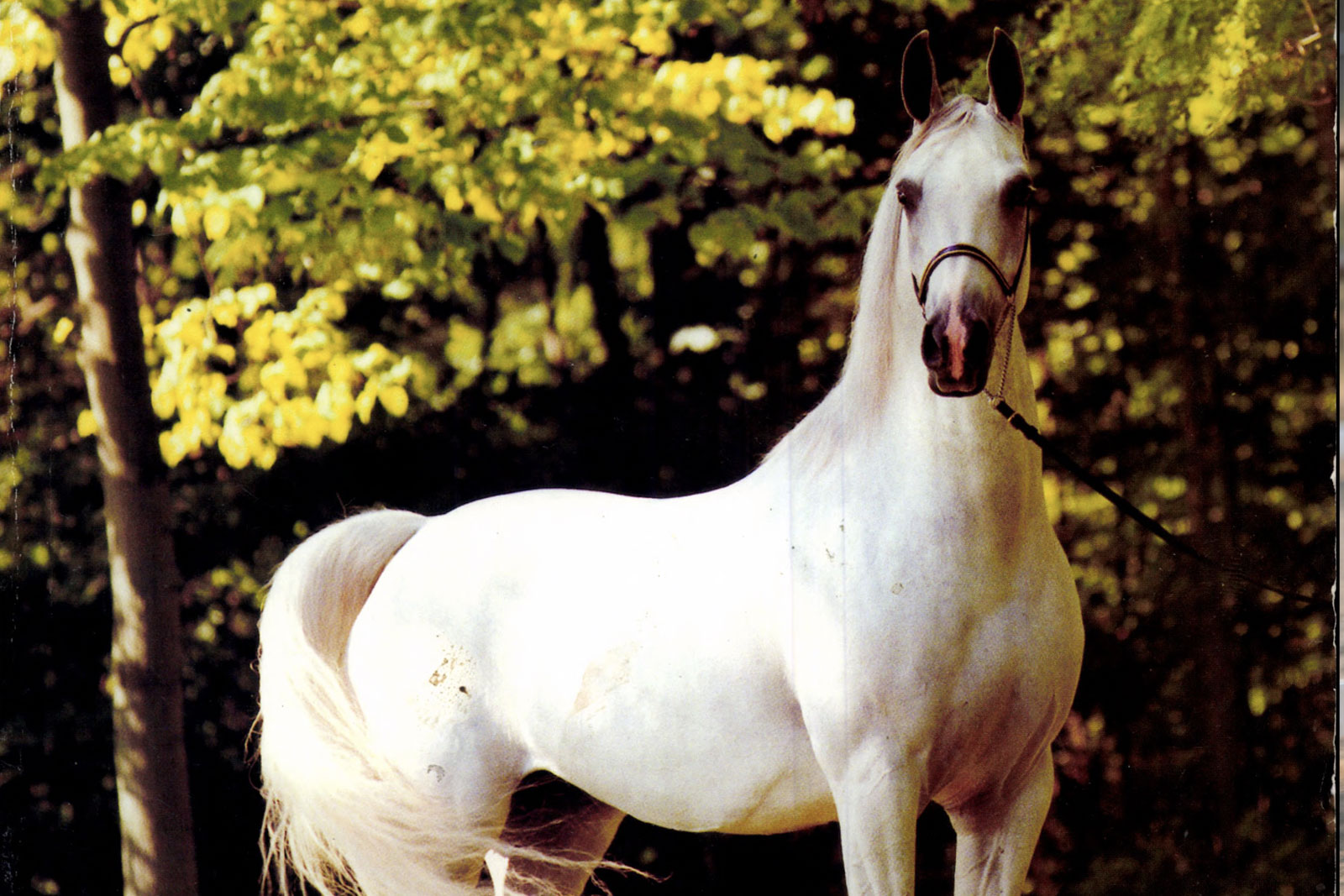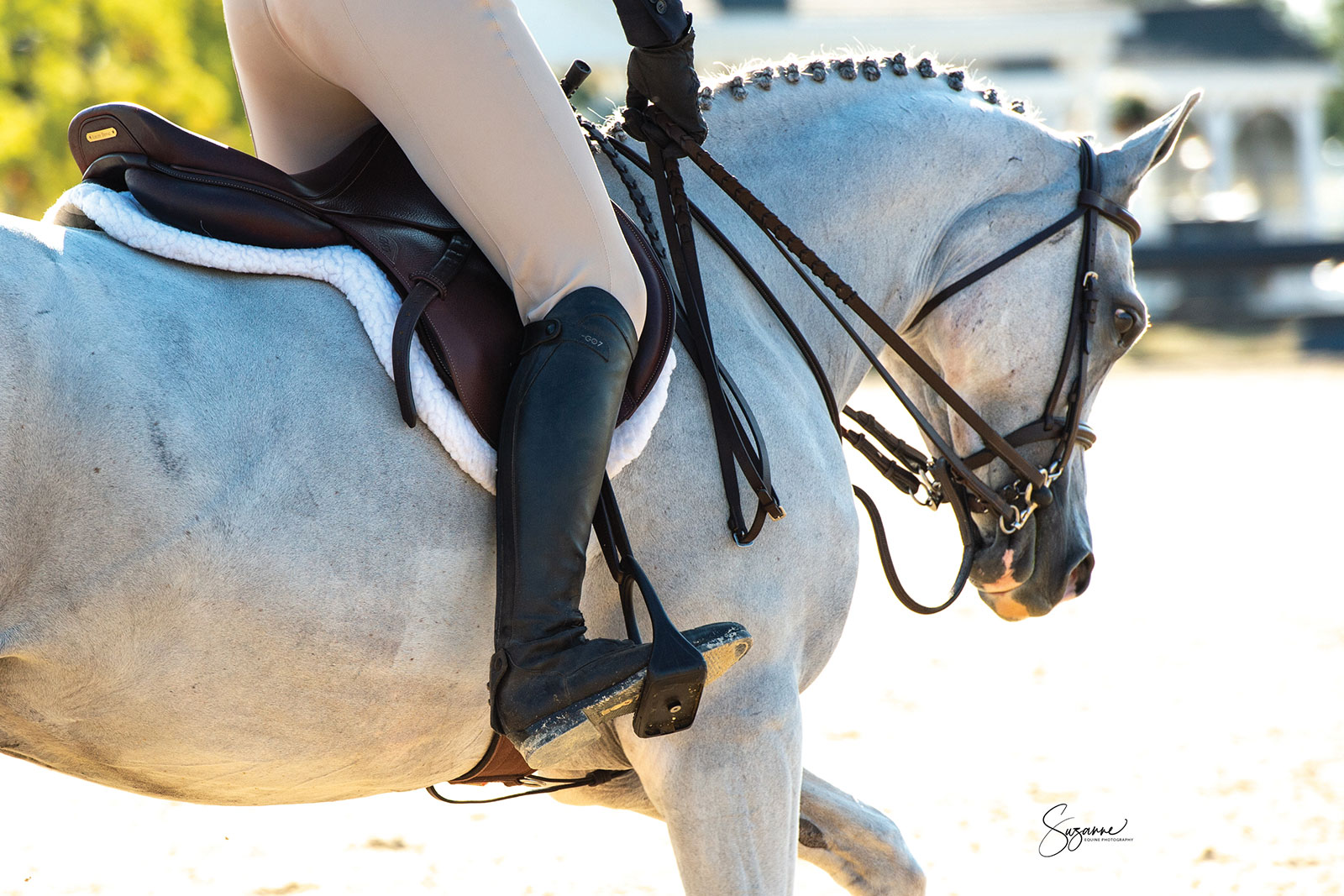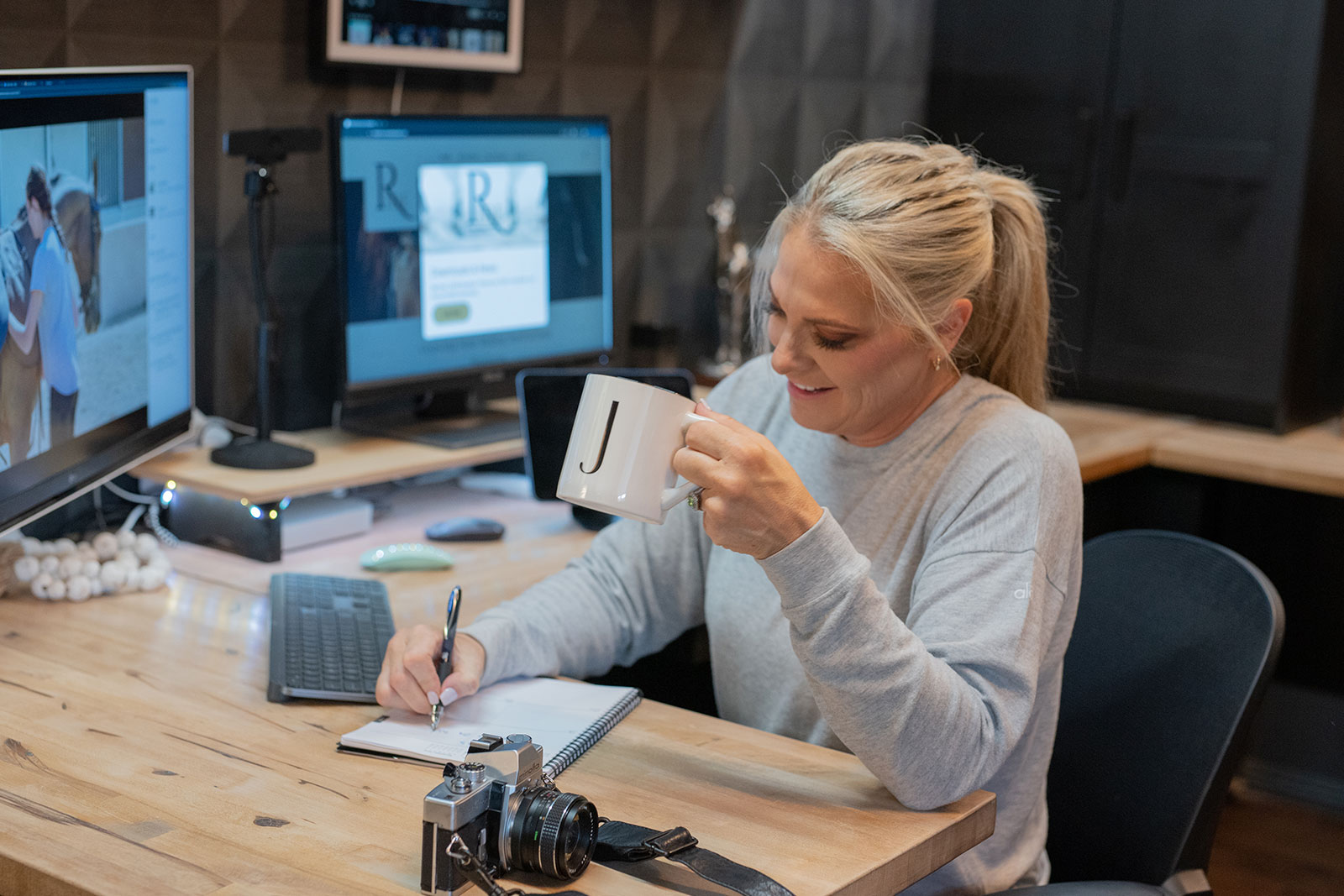Above: The conservatory and Murdock’s “famous” boulders.
Story by Julie Adams
Ventura Farms’ Breeding Manager, 1999-2005
As featured in the Summer 2025 issue of Arabian Horse World
Nestled in the hills of Thousand Oaks, California, Ventura Farms has long stood as a symbol of excellence in breeding, horticulture, and quiet grandeur. Behind the gates of the 2,200 acre estate lies a story of its visionary owner, David H. Murdock – a man known publicly as a billionaire businessman and the chairman of Dole Food Company, but known privately as a complex, driven individual whose passions stretched from Arabian horses and Santa Gertrudis cattle to nutrition and longevity, philanthropy, and even award-winning orchids.
Mr. Murdock passed away on June 9, 2025, at the remarkable age of 102. Though many knew him through headlines and corporate ventures, his life beyond business was rich with passion, ambition, and an unwavering commitment to beauty, most notably, through his Arabian horses at Ventura Farms.
Humble Beginnings and Unyielding Drive
Long before David H. Murdock became a fixture in corporate boardrooms or a prominent name in Arabian horse breeding, his life was shaped by hardship, resilience, and a fierce drive not just to survive, but thrive.
Born into modest circumstances, Mr. Murdock rarely saw his father, who worked as a traveling salesman. His mother worked tirelessly, taking in laundry and scrubbing floors to keep the family afloat. Her determination left a lasting imprint on him, though he lost her early to cancer. She died when she was just 42, leaving him to navigate the world largely on his own at the young age of 17.
School had offered little refuge growing up. Struggling with dyslexia long before learning disabilities were recognized, Mr. Murdock found academics frustrating and his peers often cruel. Despite his natural intelligence, he was labeled a poor student. He left school at 14, never finishing high school or attending college. Yet in later years, he often described his lack of formal education as an unexpected advantage. It forced him to develop an exceptional work ethic and sharpen his street smarts. He compensated by reading voraciously and constantly seeking ways to train his mind to work faster and more effectively. In his later boardroom years, he would take pride in being surrounded at the table by PhDs and scholars, never considering his lack of schooling to be a hindrance.
Mr. Murdock was drafted into the US Army in 1943. After serving for several years, he returned to civilian life with little to his name. At the age of 22, he found himself a penniless and homeless veteran. But it was during those lean years that he took his first step toward financial independence. A chance connection with an employee at a loan company led him to borrow enough money to buy a small diner for $1,200, a daring investment for someone with so few resources.
He transformed the business, scrubbing, painting, and repairing it himself. Not long after, he sold it for $1,900. That small profit allowed him to purchase a used car for $75. With characteristic determination, he set out for the West, landing first in Phoenix.
There, as the population surged in the years following World War II, Mr. Murdock found his footing in real estate. He began purchasing inexpensive land and building affordable homes to meet the needs of families migrating south and west. His ability to recognize opportunity—and act on it—quickly set him apart. Before long, he had established a reputation as a shrewd, driven developer. Later, after he moved to Los Angeles, he became known as having a keen eye for a struggling business and enough ruthlessness to gut the company and start over, keeping only what was proving to add value before selling it at a profit.
Throughout his life, he leaned on these early experiences that shaped his philosophy on work, perseverance, and success. Those tough years instilled in him a determined belief in self-reliance and relentless effort—values that would ensure his rise to success and power in every venture he would later pursue, from business to agriculture to Arabian horses.
A VISION BEYOND BUSINESS
Though his name became synonymous with business success, Mr. Murdock’s interests and passions extended far beyond the boardroom.
Despite his severe allergies to horses, he developed a deep appreciation for Arabian horses, reveling in the intelligence, history, beauty, and athleticism of the breed. In his later years, he often kept a physical distance from the animals themselves. Still, he took great pride in their accomplishments and remained involved in his farm’s breeding strategies and show-ring results.
Purchased by Mr. Murdock in 1978, Ventura Farms wasn’t simply his private retreat. To house his growing herd, the ranch was expanded by 1,800 acres in the mid-80s, including new barns, a swimming pool for the horses, and every amenity a proper breeding and training farm should have. Every division, from the Arabian horse program to the cattle division to the film division, was run with the same exacting standards that defined his business ventures. Mr. Mudock was direct, sometimes disarming, but always focused on the bigger picture. Every department at Ventura Farms was expected to operate efficiently and with purpose. He encouraged us to find more cost-effective ways to do things, even though we knew the financial well was deep; it was no excuse for squandering money beyond our allocated budget. No decision, be it a horse purchase or an infrastructure investment, was finalized without his signature. His initials, “DHM,” appeared on every approval.
Though his standards were high, he was also known for his commitment to those who worked for him. Education was a core value. He insisted that all employees learn English and supported many in their efforts to gain U.S. citizenship. He encouraged staff to pursue additional skills or trades, often funding certifications and training programs. Many credit their careers—and their personal growth—to the opportunities he provided. Throughout the years, generations of families grew up at Ventura Farms. We were a tight-knit group, and those of us who worked at Ventura Farms found ourselves with family that extended beyond our genealogy.
While he could be demanding, Mr. Murdock frequently promoted from within, rewarding loyalty and hard work with advancement. He recognized talent and curated an incredible, dedicated team that evolved over the decades. From the start with managers, Bill and Terry Gregory, through various National-level trainers, farm managers, and breeding managers such as myself, each of us at Ventura Farms felt blessed to be there.
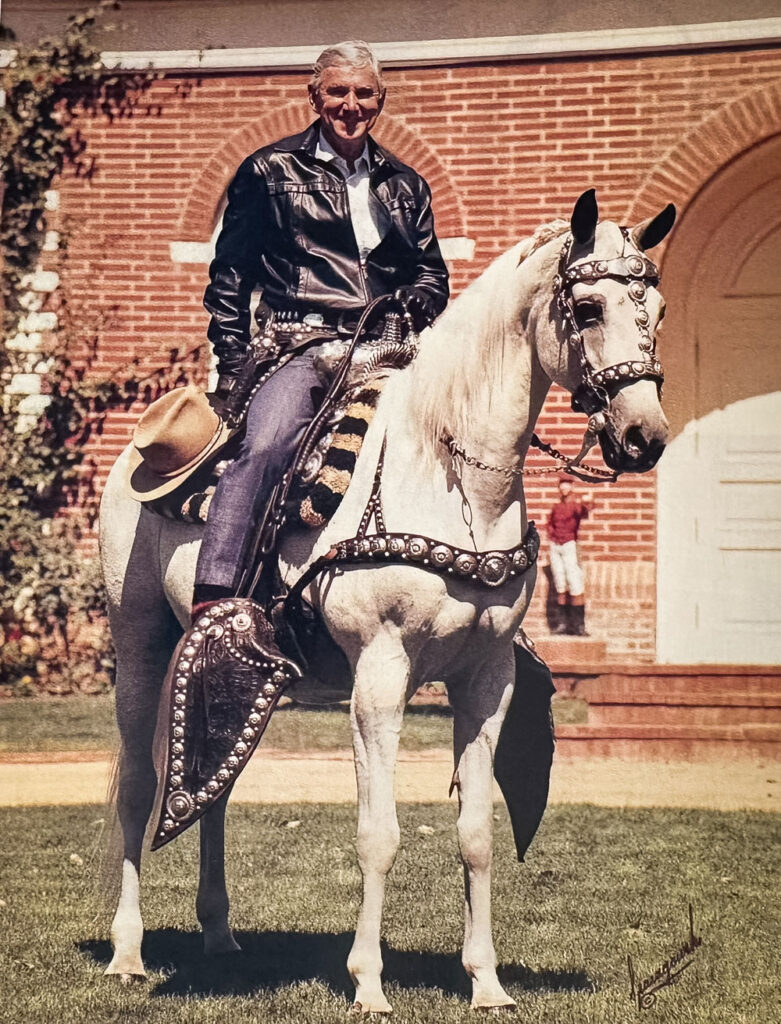
Mr. Murdock’s favorite riding horse, *Fantazja+++ (Negatiw x Fornarina) 1966 Pure Polish grey mare. She was purchased by Mr. Murdock in the Nichols/DeLongpre Sale II in February of 1980 for $450,000.
POLISH ROYALTY IN THE PASTURES
Within the Arabian horse community, Ventura Farms will forever be remembered for its collection of exceptional pure Polish Arabian horses.
In 1982, with Bill and Terry Gregory acting as agents, Mr. Murdock purchased *Bandos PASB for a record-breaking $860,000 at the Polish Prestige Sale at Janów Podlaski Stud in Poland. Already revered in his homeland, *Bandos became a magnet for breeders and visitors at Ventura Farms. He elevated the farm’s reputation to global prominence.
The farm soon became a gathering place for Arabian horse enthusiasts from around the world. Grand open houses, charity galas, racing seminars, and private sales were frequent events—and *Bandos was always at the center of it all. Whether making a grand entrance or standing regally in his stall, he remained the undisputed star of Ventura Farms.
Mr. Murdock’s admiration for Polish bloodlines didn’t stop with *Bandos. He assembled an impressive group of mares, including *Penicylina (Palas x Pentoda), purchased at the 1985 Polish Ovation Mares of the State Stud sale at Lasma in Scottsdale for a then-record price of one and a half million dollars. *Penicylina became the United States National Champion Mare the following year in Louisville, with Jerry Sindt at the lead. Ventura Farms’ pastures soon held the most extensive collection of *Comet daughters, celebrated *Bask daughters, and countless other Polish royalty. Together, they formed the backbone of a breeding program full of champions.
Due to the Tax Reform Act of 1986, the Arabian horse market softened in the years that followed. True to Mr. Murdock’s keen business sense, his focus shifted for a time. The farm’s foal crops dwindled, at one point down to just four foals. His pastures that once held hundreds of mares mainly sat empty. Yet, his commitment to the breed and affection for the Arabian horse never entirely disappeared. The spark was rekindled in 1998 with the acquisition of the stallions, Alada Baskin and Psymadre, marking a new chapter for Ventura Farms.
Psymadre (Padrons Psyche x Tomorrows Dream by *Aladdinn out of Basks Delight by *Bask) and Alada Baskin (*Aladdinn x Launa Basketu by Baske-Tu) had significant Polish blood in their pedigrees. Still, both stallions had a modern, current phenotype and genotype that would complement the current market successfully. Additionally, both stallions could sire horses that would be competitive in both the halter ring and under saddle. In the fall of 2000, the Psymadre son, TF Psymreekhe, was purchased by Mr. Murdock. At Scottsdale, 2001, resident trainer, Rich Simpkins, led TF Psymreekhe to the title of Scottsdale Junior Champion Colt. The duo would go on to win United States National Champion Yearling Colt that year and Canadian Reserve National Champion Junior Stallion.
With these stallion acquisitions, Mr. Murdock recommitted to producing horses that could compete at the highest levels, both in halter and performance divisions. He also reaffirmed his dedication to integrity within the Arabian industry and to creating meaningful opportunities for his staff to thrive alongside the farm’s success. The years after that were filled with purchasing mares and building Ventura Farms’ breeding program back up to the National level. We bred an additional 200 horses in this second iteration of VF-bred horses, bringing the total to just over 700 Ventura Farms-bred horses over the lifespan of his breeding program.
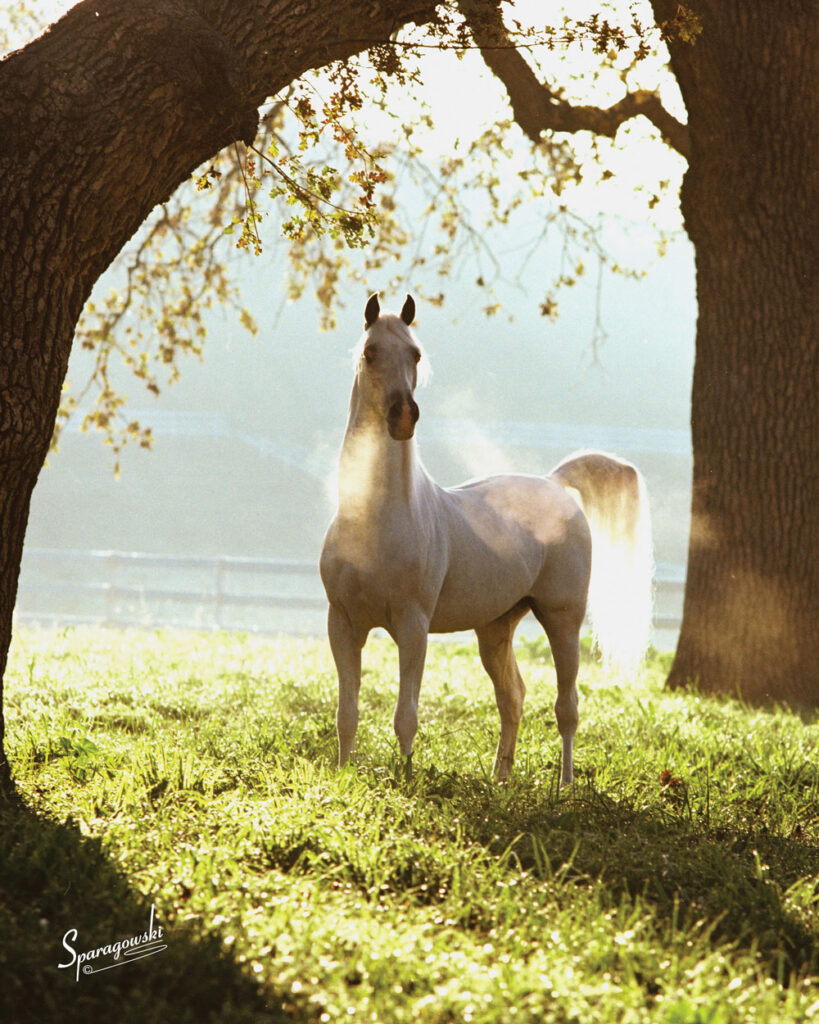
*Bandos PASB.
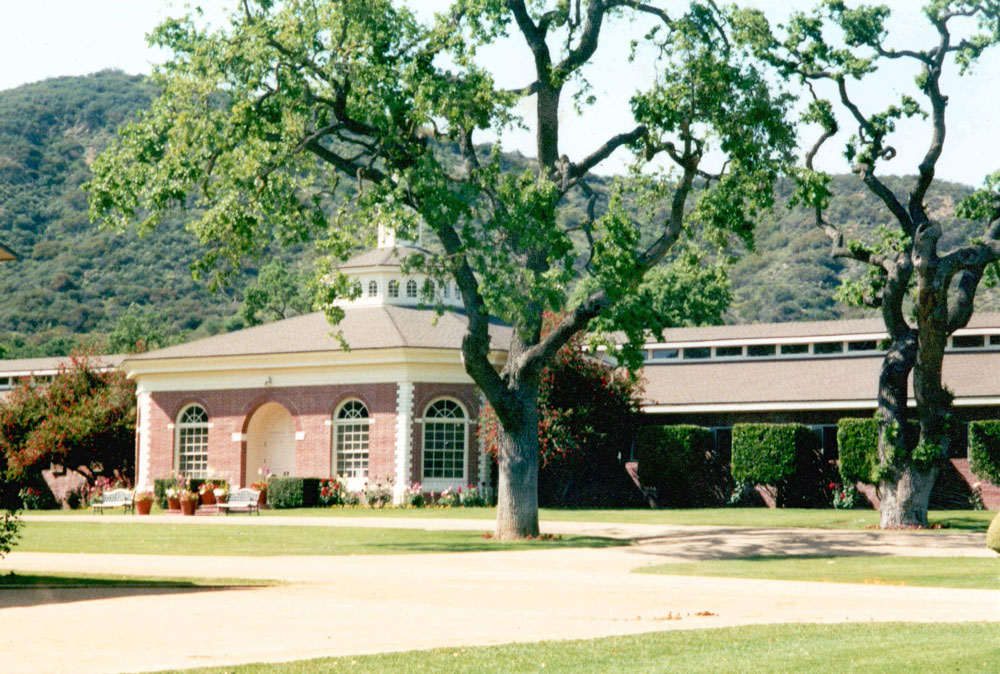
The barn at Ventura Farms.
HOLLYWOOD’S HIDDEN GEM
Though Ventura Farms was best known for its horses, it developed an unexpected reputation–and income source–as a film location. The estate’s sweeping vistas, mature oak trees, iconic architecture, and miles of dirt roads caught the eye of Hollywood producers. Being within the coveted 45-mile radius of Hollywood ensured that the land called Ventura was seen in many films, TV shows, and commercials.
Many will recognize Ventura Farms in film productions such as Dynasty, The A-Team, Fantasy Island, The Thorn Birds, Charlie’s Angels, and Memoirs of a Geisha. Ventura Farms’ pastures, barns, and dirt roads are highly recognizable in many of Budweiser’s iconic Clydesdale-centric Super Bowl commercials. The estate’s Film Division ultimately became more lucrative than its horse operations; a fact that helped the farm stay in the black throughout the shifting tides of the horse industry.
Still, Ventura Farms was never about profit alone. It was, above all else, a personal sanctuary—a place where Mr. Murdock’s many interests could coexist, from agriculture and film to horses and horticulture.
More Than Horses: A Visionary’s Playground
Though Arabian horses were the farm’s most treasured possessions, Ventura Farms was far more than a breeding facility. It was, in many ways, an expression of Mr. Murdock’s many interests.
One of the most captivating parts of the estate was his 18,000 square foot conservatory, a lush, glass-walled greenhouse filled with exotic trees, vibrant flowers, and rare plants from around the world. Attached to the conservatory is a 24,000 square foot production greenhouse featuring hundreds of types of fruits and vegetables. The conservatory housed his award-winning orchid collection that once topped 25,000 orchids. Visitors walking the path up to the conservatory would pass massive boulders imported from the River Kwai in Thailand, placed with deliberate precision by cranes after a long journey by ship to the States. The entire estate—its gardens, koi ponds, Japanese tea house, pavilions, and ornamental landscaping—reflected his unrelenting attention to detail and desire to be surrounded by beauty.
Health and longevity were personal obsessions. Motivated in part by the early death of his mother to cancer, followed by the untimely cancer diagnosis and subsequent death of his beloved wife, Gabriella, at the young age of 43, Mr. Murdock became determined to use nutrition to live as long as possible. For the last 40-odd years of his life, he followed a strict diet—at times vegetarian, at others pescatarian—and dedicated vast resources to nutrition research. Through the Dole Nutrition Institute and other initiatives, he promoted dietary wellness and longevity, firmly believing in the power of food to extend life. He believed that had he and Gabriella known more about nutrition in their early years, her cancer diagnosis could have been avoided. In the end, he lived to the age of 102, a fair amount short of his goal of 125 years of age, but a respectably long life indeed.
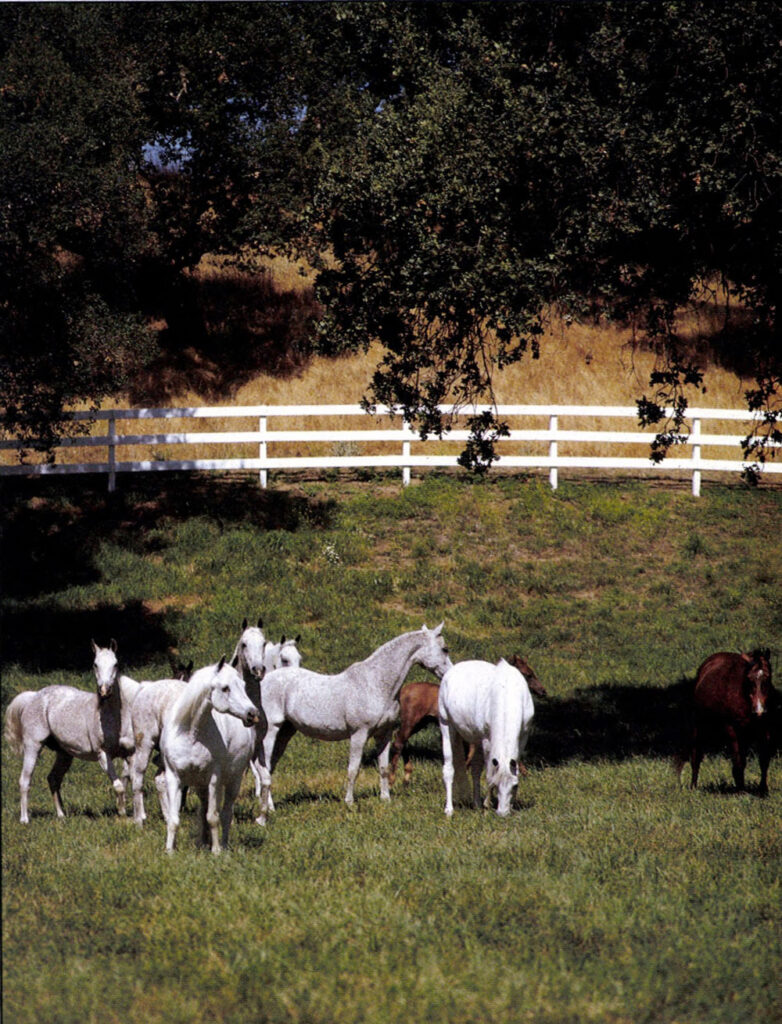
Beautiful mares in the pastures of Ventura.
REMEMBERING A LEGACY
How does one summarize a life as complex and far-reaching as that of David H. Murdock? He was a man of formidable ambition, exacting standards, and undeniable vision. He could be tough and uncompromising, yet also committed to creating opportunities for others and could often be unexpectedly kind.
Though he rarely spent time in the barn due to his allergies, his respect for the Arabian horse—and for those who cared for them—was clear. He remained proud of his horses’ accomplishments throughout his life, and Ventura Farms became a beacon within the Arabian community.
With his passing, the Arabian horse world—and indeed, many others—reflect on a legacy that transcends business or horses. His is a story of perseverance, vision, and an unwavering belief in the value of hard work and discipline.
Today, Ventura Farms remains as he envisioned it—a place of extraordinary beauty, purpose, and quiet grandeur. In its hills, gardens, and pastures, the legacy of David H. Murdock endures—steadfast and unmistakable— in a land called Ventura.
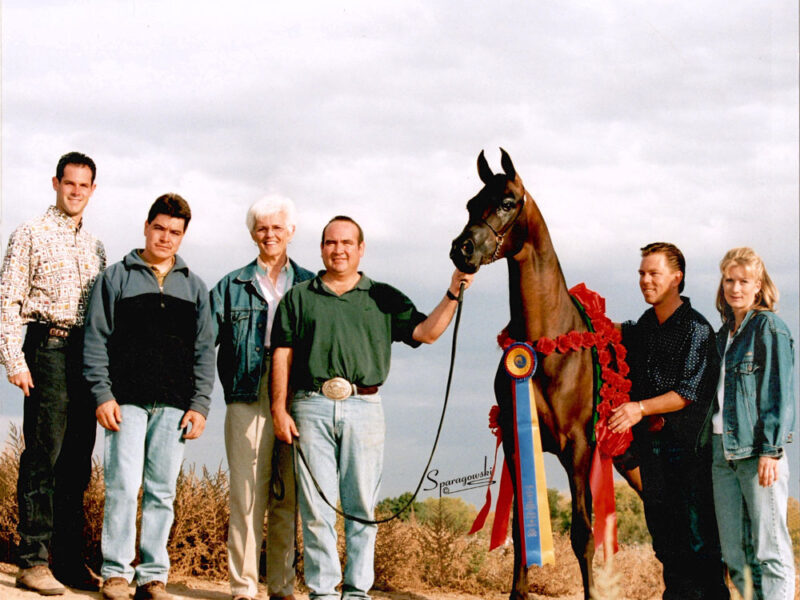
2001 US National Champion Yearling Colt TF Psymreekhe. Pictured L to R: Troy Smith, Sergio Bueno, Joyce Schroeder, Carmelo Zavala, Rich Simpkins, and Julie Adams.
A LAST WORD FROM THE AUTHOR
My years at Ventura Farms remain among the most meaningful chapters of my life. The memories made there—of early mornings, late night foalings, busy breeding seasons, and quiet moments in the barns—have stayed with me, and always will. We lived together, worked together, and traveled to shows together. When a VF or client horse won, we all won. We were more than coworkers; we were a family. And our clients were often an extension of that. Many of the friendships we formed at Ventura Farms have lasted for decades. Though those years held their share of both joy and heartbreak, it was truly a privilege to be part of something so special.
JULIE ADAMS
VF Breeding Manager, 1999-2005



